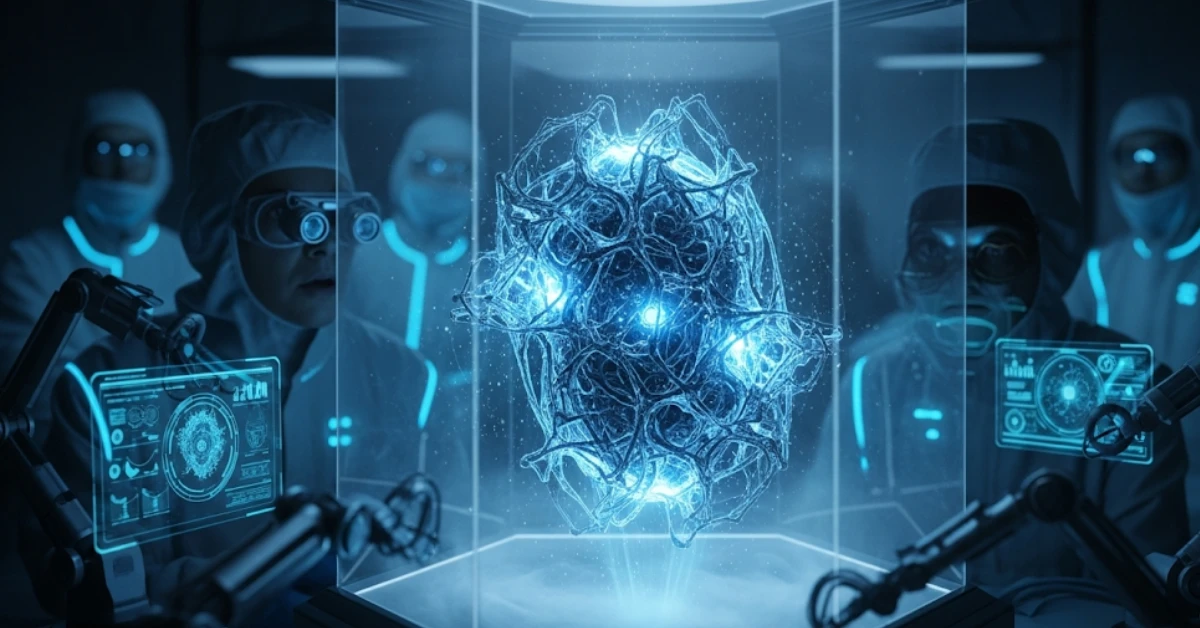Hold onto your hats, tech enthusiasts. The science world is buzzing with a discovery that sounds straight out of sci-fi, but it’s very real. Deep within our planet, researchers unearthed a previously unknown strain of bacteria thriving in crushing pressure and intense heat. The kicker? This microbe possesses biological structures unlike anything documented before – structures hinting at properties that could revolutionize materials science. Is it alien? Probably not. But its potential feels out-of-this-world.
What Exactly Was Found?
Dubbed “Strain E-Terra-1,” this microbe was discovered miles underground in a gold mine. Forget your average bacteria. Initial analysis reveals it builds intricate, nano-scale protein filaments and mineral coatings with highly unusual atomic arrangements. Think of it like nature inventing a completely new, super-efficient Lego brick. These structures exhibit exceptional thermal stability and surprising electrical conductivity – traits materials engineers dream about.
Why the Global Buzz?
This isn’t just about finding a weird bug. It’s about the blueprint. If scientists can understand and replicate how Strain E-Terra-1 constructs these materials biologically, it opens doors to:
-
Next-Gen Electronics: Imagine ultra-efficient, self-assembling circuits or bio-compatible sensors far beyond silicon’s limits.
-
Revolutionary Materials: Heat-resistant coatings for spacecraft or engines, incredibly strong yet lightweight composites, or novel energy storage solutions.
-
Medical Miracles: Targeted drug delivery systems or biocompatible implants inspired by these unique structures.
The “Alien” Angle (Minus the Little Green Men)
The “alien” label stems from the sheer novelty. This microbe’s approach to building materials is fundamentally different from known biological processes. It challenges our understanding of what’s possible naturally on Earth. It’s not that it came from space; it’s that its tech looks like it could have. It forces us to reconsider the boundaries of life and the materials it can create.
A Dose of Reality (But Keep the Excitement!)
Hold the phone before declaring warp drives are next week. This is foundational science. Decoding, replicating, and scaling these biological processes into usable tech will take years, maybe decades. Rigorous peer review and replication of the findings are essential first steps. The path from deep-Earth microbe to your next smartphone is long and complex.
The Takeaway: Cautious Optimism
The discovery of Strain E-Terra-1 is a powerful reminder: Earth still holds profound secrets. It highlights the untapped potential of biomimicry – learning from nature’s genius. While we shouldn’t expect alien gadgets tomorrow, this finding ignites global scientific curiosity. It represents a potential paradigm shift in how we design and build future technology. The race is on to understand this deep-Earth marvel and unlock its secrets. The implications, if realized, could truly reshape our world. Stay tuned – this story is just beginning.







